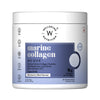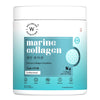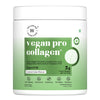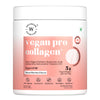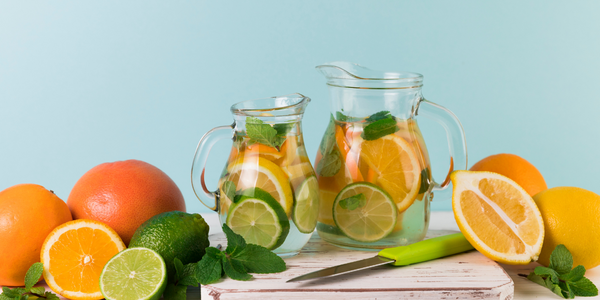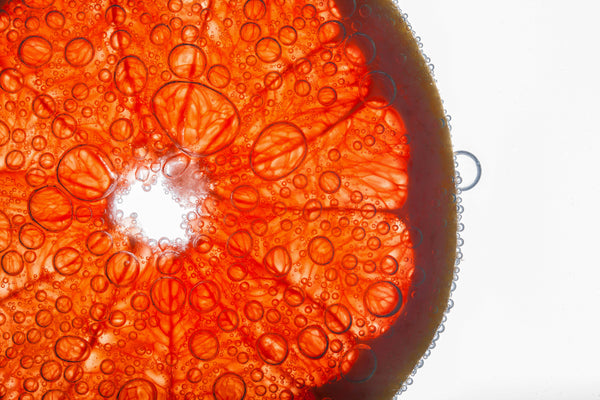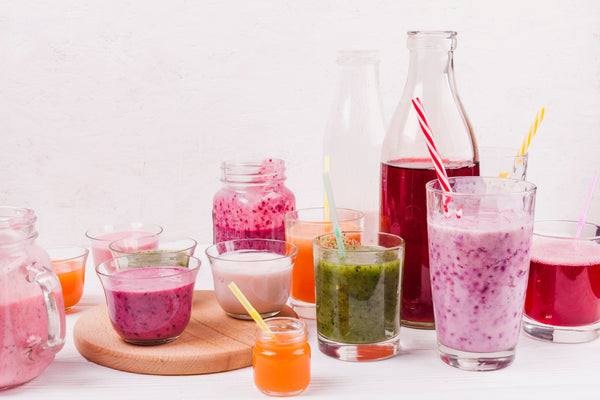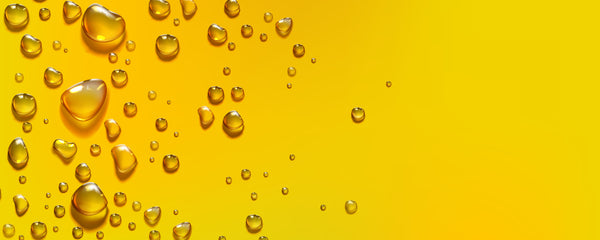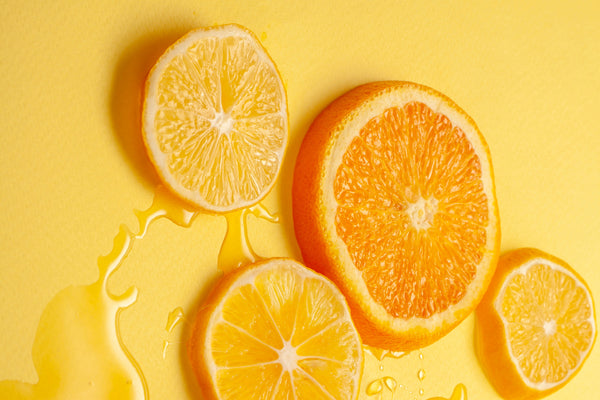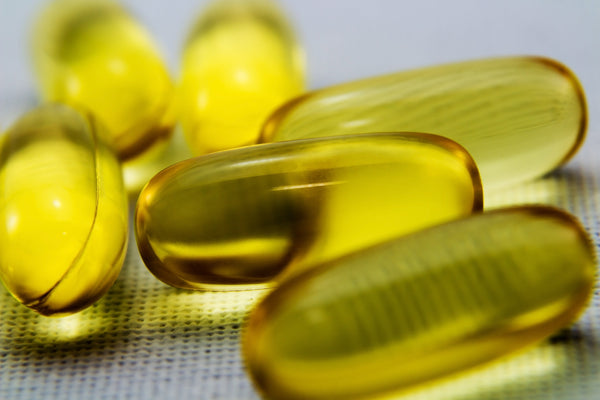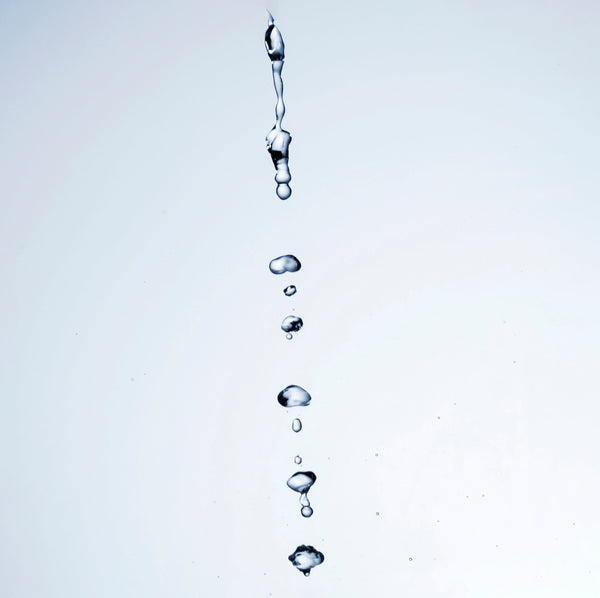Have you heard about Marine Collagen, Bovine Collagen and Plant Collagen? Do you know what collagen is in the first place? If you just answered “No” and are curious, this blog is for you. Below, you’ll learn about what collagen is, what are its types and which one’s best for you. So, if you’re ready, let’s begin
What is collagen?
Collagen is a naturally occurring protein present in your body which helps in blood clotting and offers a texture to your skin. Also, collagen acts as the building block for:
● Ligaments
● Tendons
● Muscles
● Skin
● Bones
Collagen Types
In total there are at least 16 types of collagens. However, 4 main ones constituting 80-90% of the collagen in our body are:
● Type I: It’s made from densely packed fibers that account for 90% of your body’s collagen. Type I collagen provides structure to tendons, bones, teeth, connective tissue and skin.
● Type II: Fibers in his type are more loosely packed. Type II is found in elastic cartilage
● Type III: This collagen type supports your arteries, organs and muscles.
● Type IV: Found in your skin layer IV helps in filtration.
What are the types of collagen based on sources?
Here are the primary sources of collagen:
Marine Collagen
Marine Collagen belongs to the Type I category of collagen and is made from fish scales and skin. This collagen type is most abundant in your body and is helpful in healing. Also, when it comes to boosting skin health, marine collagen is your best friend. It’s because marine collagen acts as the building block for firmness and elasticity in your skin.
Bovine Collagen
Bovine collagen is a blend of both Type III and Type I collagen. It’s obtained from the hides of grass eating cattle. Cattle are purposefully harvested for the meat out of which the collagen protein is extracted. For obtaining bovine collagen, one must only prefer cattle which feed on grass all year long over the cattle treated with hormones and antibiotics.
Bovine collagen helps you repair your skin, ligaments, tendons and bones. If you’re facing joint pain or any issue related to bones, this collagen can help. However, this is a little less effective than marine collagen.
Plant Collagen
Technically speaking, plant collagen doesn’t exist. This protein, i.e. collagen, can only be derived from animals. However, keeping in mind the vegan consumers, scientists have discovered a unique way of creating plant collagen.
The plant or vegan collagen actually has no collagen. Instead, it comes loaded with nutrients that help in collagen production. Here are some nutrients that help with collagen production:
● Sulfur
● Amino acids such as glycine, lysine, proline, and arginine
● Copper
● Vitamin C
● Zinc
You can think of plant collagen as the next best thing to marine or bovine collagen for vegans. However, you shouldn’t expect the same results that you would get from marine and bovine collagen.
What are the common sources of collagen?
Here are some collagen-rich foods that you can consume to ensure bone and skin health:
● Chicken
● Bone broth
● Citrus fruits
● Fish and Shellfish
● Beans
● Egg whites
● Garlic
● Tomatoes
● Bell peppers
● Cashews
● Tropical fruits:
o Guava
o Kiwi
o Mangoes
o Pineapples
● Berries
o Blackberries
o Strawberries
o Blueberries
o Raspberries
● Leafy green vegetables
o Collards
o Spinach
o Kale
o Arugula
o Swiss chard
Which collagen is the best?
Undoubtedly, marine collagen is the best as compared to other alternatives. It’s because:
● Marine collagen is free from antibiotics and hormones.
● Marine collagen comes with smaller particles which are easily absorbed by the skin.
● Marine collagen has the best rate of efficiency when it comes to bone health and skin health.
How can you consume marine collagen?
Now that you know which collagen works the best, let’s talk about how you can consume it. You can opt for fishes, jellyfish, sharks, starfish, shell fishes etc. for marine collagen. But this is not feasible for all.
So, here’s a more convenient option. There are several easily consumable supplements that have marine collagen which you can trust and buy online. And one such reliable supplement is Skin Fuel from Wellbeing Nutrition. Skin Fuel is basically your dose of Bioactive Japanese Marine Collagen along with antioxidants, vitamins, hyaluronic acid and l–glutathione. It’s India’s first drinkable skin nourishment product, which strengthens and builds the collagen matrix.
Skin fuel is a peptide drink which can nourish your skin from within. It comes in the form of water-soluble tablets. You can drop a tablet in a glass of water, let it dissolve and then you can consume it. All in all, Skin Fuel is meant for anyone who wants fine lines and wrinkle free skin that glows with radiance.
Wellbeing Nutrition has also come up with a brand new product- Marine Collagen. Sourced from Korean deep sea fish, this contains type I and type III collagen and offers 8000 mg of the same, per serving. This powder has no taste and no odour and one can mix it with smoothies, parfaits, coffee, tea, or other baked goods to make it a part of their daily consumption. Apart from that, it is gluten free, keto-friendly, paleo friendly, non-GMO, halal and kosher certified, and contains zero sugar.
To Wrap up
If you compare marine collagen, bovine collagen, and plant collagen, all three are derived from different sources. However, the motive is the same: to help improve bones, ligaments, tendons and skin health. However, marine collagen gives you the finest result. Having said that, it is best to consume natural sources of collagen, if you can. But if you cannot do that, you must opt for reliable, safe, affordable and effective products like Skin Fuel and Pure Korean Marine Collagen Powder from Wellbeing Nutrition.
References
- Lodish H, Berk A, Zipursky SL, et al. Molecular Cell Biology. 4th edition. New York: W. H. Freeman; 2000. Section 22.3, Collagen: The Fibrous Proteins of the Matrix. Available from: https://www.ncbi.nlm.nih.gov/books/NBK21582/
- De Luca C, Mikhal'chik EV, Suprun MV, Papacharalambous M, Truhanov AI, Korkina LG. Skin Antiageing and Systemic Redox Effects of Supplementation with Marine Collagen Peptides and Plant-Derived Antioxidants: A Single-Blind Case-Control Clinical Study. Oxid Med Cell Longev. 2016; 2016:4389410. doi:10.1155/2016/4389410. (https://www.ncbi.nlm.nih.gov/pmc/articles/PMC4745978/)
- Bolke L, Schlippe G, Gerß J, Voss W. A Collagen Supplement Improves Skin Hydration, Elasticity, Roughness, and Density: Results of a Randomized, Placebo-Controlled, Blind Study. Nutrients. 2019;11(10):2494. Published 2019 Oct 17. doi:10.3390/nu11102494. (https://www.ncbi.nlm.nih.gov/pmc/articles/PMC6835901/)
- DePhillipo NN, Aman ZS, Kennedy MI, Begley JP, Moatshe G, LaPrade RF. Efficacy of Vitamin C Supplementation on Collagen Synthesis and Oxidative Stress After Musculoskeletal Injuries: A Systematic Review. Orthop J Sports Med. 2018;6(10):2325967118804544. Published 2018 Oct 25. doi:10.1177/2325967118804544. (https://www.ncbi.nlm.nih.gov/pmc/articles/PMC6204628/)
- León-López A, Morales-Peñaloza A, Martínez-Juárez VM, Vargas-Torres A, Zeugolis DI, Aguirre-Álvarez G. Hydrolyzed Collagen-Sources and Applications. Molecules. 2019;24(22):4031. Published 2019 Nov 7. doi:10.3390/molecules24224031. (https://www.ncbi.nlm.nih.gov/pmc/articles/PMC6891674/)
- Coppola D, Oliviero M, Vitale GA, et al. Marine Collagen from Alternative and Sustainable Sources: Extraction, Processing and Applications. Mar Drugs. 2020;18(4):214. Published 2020 Apr 15. doi:10.3390/md18040214. (https://www.ncbi.nlm.nih.gov/pmc/articles/PMC7230273/)








